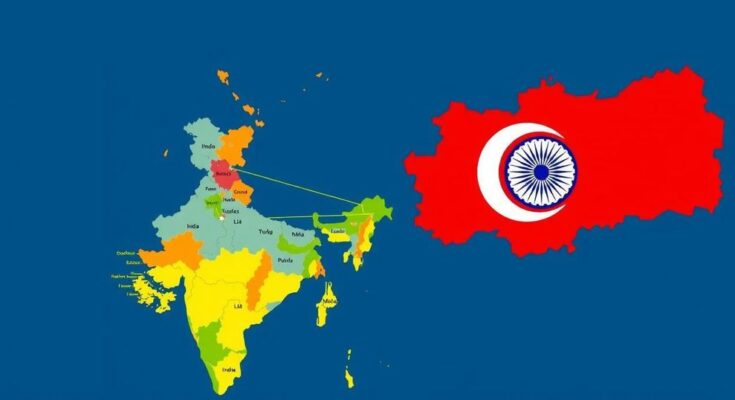India has rejected Turkey’s bid for BRICS membership, citing strong ties with Pakistan as a key reason. The rejection means that there will be no new members for the time being. Currently, BRICS remains focused on maintaining its stability and has recently welcomed several new members, including Iran and Saudi Arabia. Turkey’s aspirations to join have been hindered by the necessity of consensus among existing members, particularly due to opposition related to geopolitical concerns.
India has declined Turkey’s application for BRICS membership, primarily due to Turkey’s close affiliations with Pakistan. This decision by India prevented the necessary consensus among BRICS member nations, leading to a collective agreement not to accept new members at this time. Reports from the German newspaper BILD indicate that the rejection has resulted in Turkey’s bid falling through. Recently, during a BRICS summit attended by state and government leaders, the group reaffirmed their intention not to expand further in the near future, following the inclusion of Iran, Egypt, Ethiopia, the UAE, and Saudi Arabia as new members in previous sessions. Despite Turkey, Azerbaijan, and Malaysia having formally applied for membership, it appears that opposition from several member nations will stymie any potential enlargement. Turkey submitted its application for BRICS membership on September 2, seeking to bolster its global influence and establish stronger connections outside of its traditional Western allies, per reports by U.S.-based Bloomberg. Authorities within the Erdoğan administration perceived a significant geopolitical shift away from developed nations. On October 24, President Erdoğan participated in the 16th BRICS summit in Kazan, Russia, following an invitation from President Putin. In his address, he highlighted urgent global issues including the ongoing Israeli-Palestinian conflict and a recent violent attack in Ankara that led to five fatalities. BRICS, originally formed in 2006 by Brazil, Russia, India, and China to amplify the voice of developing nations, has evolved into a significant coalition following the induction of South Africa in 2011. This coalition aims to address the disparities in global power dynamics, particularly in contrast to the United States and its allies, advocating for reforms within major Western-dominated financial and political institutions such as the IMF and the United Nations. While initially spearheaded by Russia, it is increasingly recognized that China is assuming a pivotal role within the organization due to its substantial economic and political influence.
The BRICS coalition was established to provide developing countries with a platform to potentially reconfigure the geopolitical landscape, which has historically favored Western nations. The group was formed when Brazil, Russia, India, and China united their efforts to strengthen their voice in global affairs, seeking to represent what they consider the interests of the global East and South. This alliance aims to reform international institutions perceived as dominated by Western perspectives, reflecting a desire for a more balanced representation of global viewpoints. The recent inclusion of various nations, including Iran and Saudi Arabia, indicates an expanding influence of the bloc, although Turkey’s application highlights the complexities of inter-regional relationships and alignments.
The rejection of Turkey’s bid for BRICS membership reflects underlying geopolitical tensions, particularly concerning Turkey’s relations with Pakistan, which contributed to India’s decision. As the group navigates its expansion policies, it continues to uphold its foundational goal of representing the interests of the global South. The situation underscores the intricate balance of power within BRICS and the challenges that new applicants face when aligning with the collective consensus of existing members. In summary, Turkey’s aspirations to join BRICS have been thwarted for the time being, as the bloc appears to prioritize stability and consensus over enlargement.
Original Source: www.duvarenglish.com




